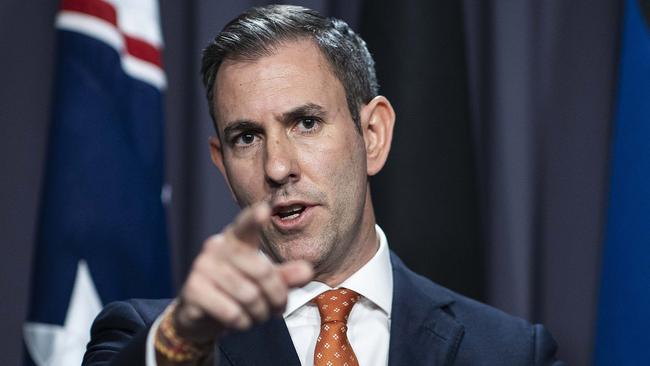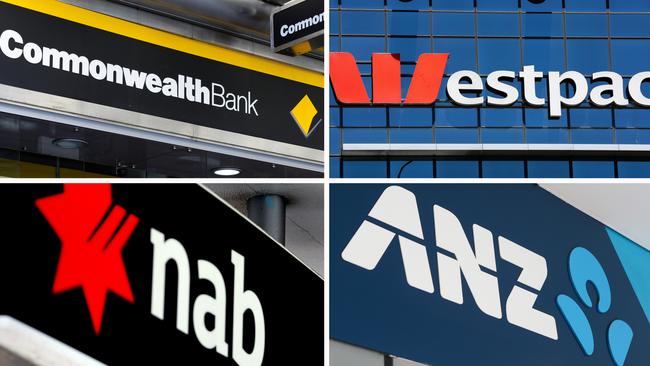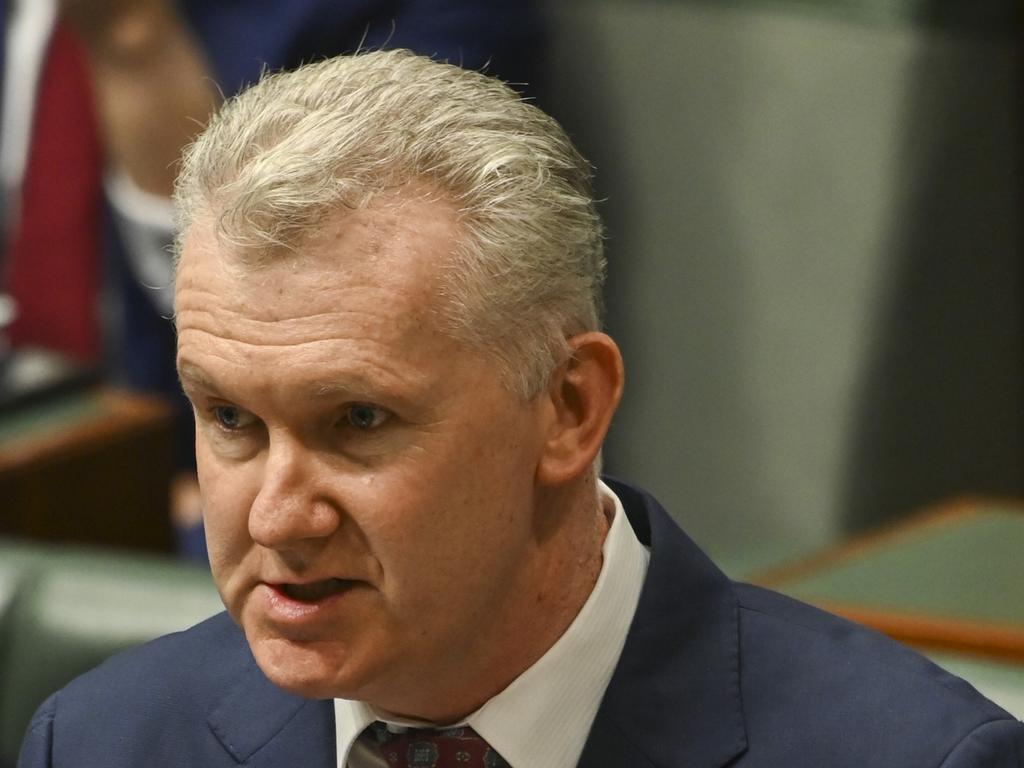Chalmers demands banks give savers ‘fair go’ on rates
Jim Chalmers warns banks after a new analysis indicated they were earning an additional $600m a month by failing to pass on rate hikes to savers.

Jim Chalmers has told the major banks to “give their customers a fair go”, after new analysis indicated they were earning an additional $600m a month from passing on to savers only a fraction of the 1.25 percentage points in rate hikes delivered since May.
Flush with cash after Australians saved an additional $260bn through the pandemic, CBA, NAB, Westpac and ANZ have held back from savers the full benefits from rapidly rising rates, even as they have quickly and completely passed them on to mortgage holders.
Ahead of a widely anticipated further 0.5-percentage-point increase to 1.85 per cent at the Reserve Bank’s board meeting on Tuesday, Morgan Stanley analyst Richard Wiles told clients that failing to pass on this year’s unexpectedly aggressive monetary policy tightening to depositors would provide a “material near-term margin tail wind for the major banks”.
The Treasurer told The Australian “people are rightly asking why interest rate increases don’t always get passed on as quickly for savings as they do for mortgages”. “It’s the least that can be done, and I urge all banks to give their customers a fair go,” Dr Chalmers said.
The average rates offered on the major banks’ “standard online savings accounts” have lifted by roughly 0.30 percentage points since April, or less than a quarter of the increase in the RBA cash rate, according to the Morgan Stanley analysis.
Shorter-duration term deposit (TD) rates – which lock in money for 3-6 months – have only risen by an average of 0.35 percentage points over the past few months, while there had been an average one-percentage-point lift on “bonus savings accounts”.
But rates on term deposits beyond 9 months duration have moved by more than the change in the official cash rate, increasing by an average of roughly 2.25 percentage points, the analysis showed.

As a result of these moves, Mr Wiles calculated the big four were enjoying a collective boost of 0.2 percentage points to their net interest margins, on an annualised basis, with roughly three-quarters of that additional income from not passing on rate hikes to customers in standard savings accounts and the balance from term deposits.
With the major banks holding $3.5 trillion in interest-bearing assets, even a tiny 0.2-percentage-point net interest margin boost translates to about a $7bn annualised boost to big bank earnings, or $580m a month, according to The Australian’s calculations. Mr Wiles said the climbing cost of funding and growing competition as deposit growth slowed meant this margin tailwind would “unwind” through the balance of this financial year.
“We expect deposit rates to increase by more than the cash rate through 2022-23,” he said.
RateCity head of research Sally Tindall said there were deposit products offering high rates of return, but bank customers needed to be proactive, and too many were paying a “loyalty tax” as a result of not shopping around.
“What we are seeing from the big banks is they are passing on in full the rate hikes, but only to select customers,” Ms Tindall said.
Ms Tindall said the CBA’s 2 million customers with Netbank savings accounts were earning 0.35 per cent on an ongoing basis – only 0.3 percentage points higher than before the first rate move in early May.
In contrast, the CBA’s Goalsaver product was offering 1.25 per cent. “That’s a really good example of how you can get dudded just by being complacent in your own bank,” she said.
Ms Tindall said ANZ was offering a 2 per cent ongoing rate on its ANZ Plus deposit product for customers who downloaded the new app. Macquarie’s day-to-day account was offering 1.75 per cent, while ING had a savings account returning 2.6 per cent.
An Australian Banking Association spokesman said the sector was “fiercely competitive”, and that “each bank makes its own decisions on its individual offers”.
“Like other financial products, deposits have a range of features that suit different circumstances, and these products can be tailored to customers’ individual circumstances,” the spokesman said.
“According to the most recent data from Canstar, there are currently at least 195 deposit products available to Australian customers, with some interest rates as high as 3.25 per cent, and customers should shop around for the best deal,” he said.
Economists expect rates to peak at about 3 per cent over the coming six to nine months, while investors predict the RBA will push its key cash rate target to 3.5 per cent by mid-2023.
As rising rates trigger the fastest house price falls in decades in the wake of the pandemic property price boom, there is evidence the RBA’s aggressive rate hike cycle is beginning to ring alarm bells in the political class.
Anthony Albanese has recently warned of potential RBA “overreach” in its pursuit to tame inflation.
Greens senator Nick McKim argued the dramatic reversal in the Covid property boom over the past three months suggested the “RBA needs to hit pause”.
Senator McKim said the factors driving 30-year-high inflation – such as surging global oil prices and Covid-related disruptions to labour and materials – weren’t affected by rate hikes.






To join the conversation, please log in. Don't have an account? Register
Join the conversation, you are commenting as Logout